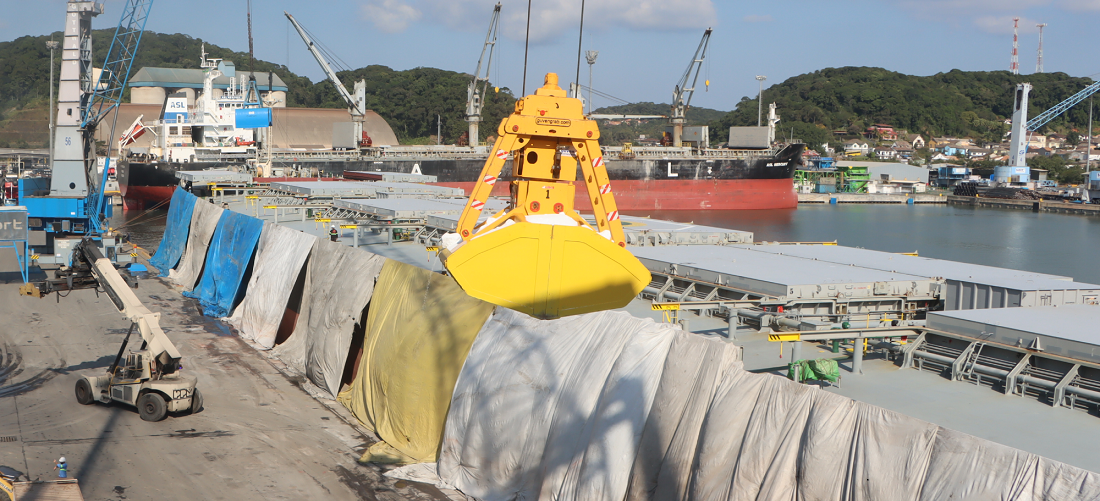
The strenuous path to import Russian fertilizers
Apr, 04, 2022 Posted by Gabriel MalheirosWeek 202214
After a little more than a month after the start of the war in Ukraine and the imposition of sanctions that constrain the Russian financial system, importers of Russian fertilizers have been able to make payments from Brazil. However, the path has grown increasingly more strenuous. The international imbroglio has led to the closing of foreign exchange operations, which are currently taking longer than usual. They are also more expensive.
Before the conflict, these operations cost close to zero for a large-volume importer. Today, they range from 0.2% to 0.5% of the total value of purchases. Importing fertilizers is a million-dollars worth of operation. “The cost of the financial operation itself did not grow as rapidly as the fertilizer price, but importers feel the pinch nonetheless.”
To get a sense of how the conflict is affecting the cost of Russian fertilizers, according to a Rabobank report issued on March 30, a tonne of fertilizer purchased on the foreign market saw a price increase of nearly 40%. Urea alone, the nitrogen-based fertilizer compound most often used by Brazilian farmers, increased by 75% to US$ 965 per tonne (price at the port in Brazil).
The process of determining the exchange rate at which goods will be traded includes typically checking the status of those involved – if they are on trade-restrictive lists – and consists of the compliance of each financial institution. The main lists are from the UN, the EU, and the US Office of Foreign Assets Control (Ofac). In a normal context, operations take only a few hours.
Longer-than-usual lead times
As an effect of the war and economic embargoes, a significant portion of Russia’s transactions takes one day to be processed. However, some cases take up to three days, says Carlos Eduardo de Andrade Jr., executive director of the BS2 bank.
“Sanctions have a very specific target. So, it isn’t easy to carry out operations with the banks withdrawn from Swift – or I don’t know how to carry them out,” mentions Andrade. The same goes for other Russian companies and individuals mentioned in the American and European restrictions lists.
Banks removed from Swift, the private international banking communication system, effectively cease to function outside their home country. Financial institutions deliver funds to their destinations via this system, and there are generally intermediate banks involved “in the way” – mainly American or European.
These institutions that serve as “middlemen” keep the quantities wire-transferred abroad in highly-valued currencies, primarily dollars or euros, until the operation finishes. In a sanctions scenario, the compliance department of banks can be even stricter than governments, aiming to protect clients from reprisals and their reputation as well, recalls Carlos Portugal Gouvêa, a partner at PGLaw. The lawyer says that there have been attempts to create a “parallel Swift” system by the Chinese government. However, these attempts have not borne fruit as of yet.
The largest Russian banks are subject to restrictions. Notwithstanding, many imports have been able to continue buying fertilizers from Russia since the nation has banks and exporting companies that are not under restrictions. “Sanctions imposed by the United States are strategic and allow further escalation. In general, the US government drained around 30% of the oxygen out of the Russian financial sector,” Gouvêa said.
Restrictive list
The EU has placed the owners of three major providers of Russian fertilizers, Uralchem/Uralkali, EuroChem, and PhosAgro, as individuals, on a restricted list. As a result, they moved away from their command position to avoid damage to their companies.
With fertilizer firms freed from embargo lists and other banking routes available, BS2 has been allowed to close foreign exchange transactions for fertilizer imports from Russia with its banking correspondents in the EU and US. In addition to official directives, each created its own set of regulations. As a result, more time has been spent on the procedure, which is one of the causes of increasing financial operations costs. “However, there is also a marketing potential. Another financial agent stated that each bank’s compliance assesses the risk and incorporates it in the margin,” stated another financial agent.
It doesn’t get any worst, right?
A resolution by the US Treasury’s Office of Foreign Assets Control (Ofac), published on March 24, freed the fertilizers trade – among other items such as commodities – from the scope of sanctions imposed by the US on Russia. The resolution led to different interpretations and heated this market. The rule does not have a solid practical effect for some agents since there was no prohibitive sanction directed at the segment.
In turn, others advocate that now it is clear that there are no restrictions on trading with suppliers of Russian fertilizers, which is “less bad” for those in a negotiating position, according to Carlos Eduardo Andrade Jr., the executive director of BS2. The guideline may help improve the flexibility of financial operations, but he does not anticipate it to have an immediate impact. According to StoneX’s Marcelo Mello, the delivery of fertilizers from Russia, which is hampered by logistical issues, is more pressing than securing payments.
Source: Valor Econômico
To read the full original article, please go to:
-
Feb, 21, 2022
0
Orange juice production in Brazil has dropped to its lowest level in 5 years
-
Oil and Gas
May, 31, 2024
0
Argentina government unblocks key Petrobras gas shipment amid supply cuts
-
Trade Regulations
Feb, 04, 2020
0
Brazilian officials positive about growing trade relations with China
-
Blog News (ENG)
Oct, 26, 2022
0
Argentine wheat harvest forecast slashed again amid drought

